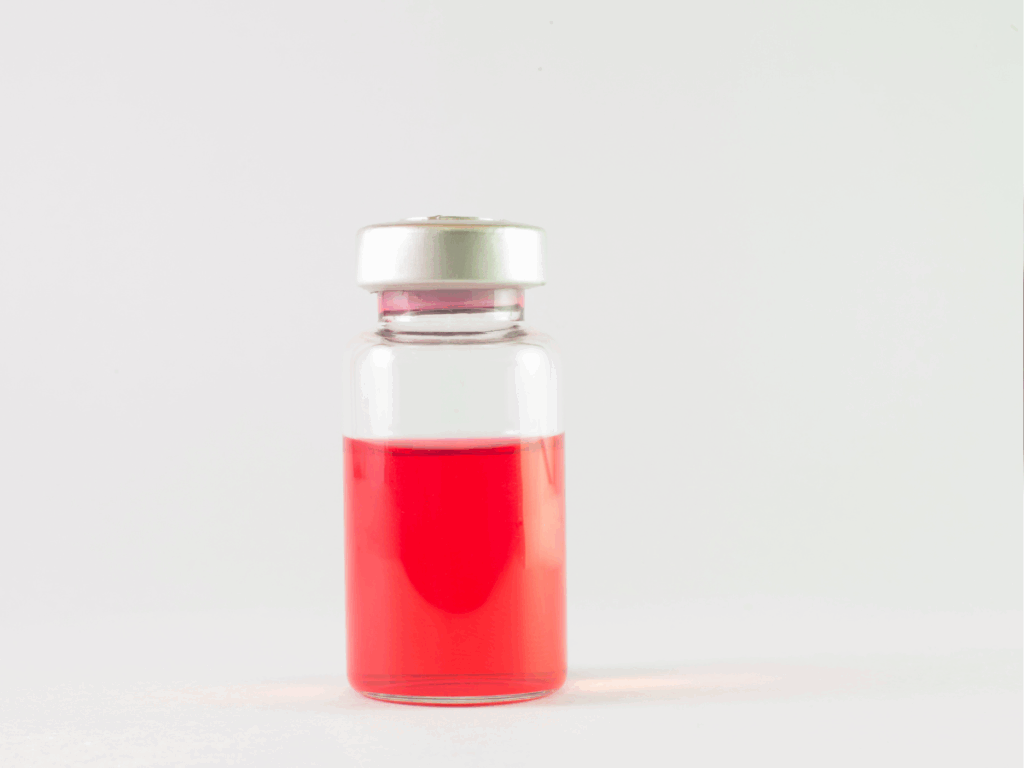
A Fine Line Between Treatment and Dependency
Methadone is a critical tool in treating opioid use disorder, helping reduce cravings and withdrawal symptoms when used under medical supervision. As a long-acting opioid agonist, it offers stability and structure in recovery, especially for those transitioning away from heroin or prescription opioids. However, its misuse is more common than many realize. According to recent treatment data, individuals in methadone-based programs may develop dependency if dosing is not closely monitored or if use continues without clinical necessity. What was once a bridge to healing can, in some cases, evolve into another form of reliance.
At Legacy Healing Center, we recognize the nuanced relationship many individuals have with methadone. Through clinically guided care, gentle detox, and comprehensive support, we help clients restore balance and regain a sense of freedom.
What Is Methadone?
Methadone is a full opioid agonist that binds to the same brain receptors as drugs like heroin or fentanyl, but its effects unfold more slowly and last much longer. This pharmacological profile makes it effective for treating opioid withdrawal and supporting long-term recovery. Yet, methadone also carries risks. Misuse, such as increasing one’s dosage without medical oversight or obtaining methadone illicitly, can lead to tolerance, dependence, and, in some cases, addiction.
When taken correctly, methadone can be a life-saving medication. But when used improperly or for too long, it may complicate recovery and contribute to renewed cycles of distress. Recognizing when its use has shifted from therapeutic to harmful is a vital step toward change.
Recognizing Methadone Misuse and Dependence
Methadone is often prescribed to treat opioid addiction, which can make it challenging to identify when its use becomes problematic. Warning signs of misuse include:
- Taking more than the prescribed dose or using methadone outside of medical supervision
- Relying on methadone for emotional stability rather than clinical need
- Struggling to stop or reduce use despite repeated efforts
- Withdrawal symptoms between doses or when attempting to quit
- Withdrawing socially or neglecting personal responsibilities
According to clinical criteria for Opioid Use Disorder, recurring cravings, compulsive use, and continued use despite consequences indicate a pattern of dependence. These are not signs of weakness—they are signs that it’s time to seek compassionate, professional support.
What Makes Methadone Addictive?
Biological Factors
Methadone’s full activation of opioid receptors means it can produce calming effects, pain relief, and, at higher doses or when misused, a sense of euphoria. Over time, the brain adjusts by reducing its natural production of dopamine and endorphins, making the individual more reliant on the drug for normal function. This leads to:
- Increased tolerance
- Physical dependence
- Heightened cravings during dose reduction or cessation
Because of methadone’s long half-life, the drug accumulates in the body, raising the risk of sedation, respiratory depression, and overdose if not carefully managed.
Psychological Factors
Beyond physical effects, methadone can serve as a coping tool for individuals managing anxiety, trauma, or the fear of relapse. This emotional reliance may deepen if underlying psychological or behavioral issues go unaddressed. People in high-stress environments or those with co-occurring mental health conditions are particularly vulnerable to developing psychological dependence.
How Does Methadone Affect the Brain?
Methadone stabilizes withdrawal symptoms by activating the brain’s opioid receptors, but it also alters how the brain processes pleasure and motivation.
Short-Term Effects:
- Reduced anxiety and pain
- Slowed reaction time and drowsiness
- Emotional numbing or detachment
Long-Term Effects:
- Diminished dopamine sensitivity
- Impaired emotional regulation and motivation
- Memory and concentration difficulties
When misused or taken long-term without ongoing assessment, methadone can dull emotional resilience and exacerbate mental health symptoms.
How Does Methadone Affect the Body?
Methadone’s physiological effects may appear mild initially but become more pronounced with long-term or unsupervised use.
Short-Term Effects:
- Constipation, nausea, and dry mouth
- Lightheadedness or dizziness
- Respiratory depression (in high doses)
Long-Term Effects:
- Hormonal disruption (e.g., testosterone suppression)
- Sexual dysfunction and fatigue
- QT interval prolongation (a potentially dangerous heart rhythm issue)
- Weight fluctuations and chronic digestive discomfort
Physical strain is especially likely when methadone is combined with alcohol or sedatives, increasing the risk of overdose.
Overdose Risks of Methadone
Methadone’s long duration in the body means overdose can occur even at seemingly modest doses, particularly if taken too frequently or with other depressants. Unlike short-acting opioids, symptoms may develop slowly, making early recognition vital.
Overdose symptoms may include:
- Extreme fatigue or loss of consciousness
- Slowed or shallow breathing
- Blue lips or fingertips
- Weak pulse or low blood pressure
- Constricted pupils
In any suspected overdose, call 911 immediately. Administer naloxone (Narcan) if available, and stay with the individual until help arrives. Prompt action can save a life.
Methadone Withdrawal & Treatment Programs
Because of its long half-life, methadone withdrawal can be both delayed and prolonged. Symptoms typically emerge 24–48 hours after the last dose and may continue for weeks or even months. These include:
- Anxiety, muscle aches, sweating, and insomnia
- Nausea, vomiting, and abdominal cramps
- Mood swings, depression, and intense cravings
Quitting methadone abruptly (“cold turkey”) is rarely recommended. A medically supervised taper, paired with supportive care, is the safest, most effective way to detox.
Treatment Programs for Methadone Addiction
Comprehensive care at Legacy Healing Center addresses the physical, emotional, and behavioral complexities of methadone dependence:
- Medical Detox & Tapering: In our licensed detox units across Florida, California, New Jersey, and Ohio, clients receive 24/7 clinical supervision, gradual tapering protocols tailored to individual needs, and medications to ease withdrawal symptoms. Each approach is designed to prioritize comfort, safety, and long-term success.
- Inpatient Programs: Residential treatment offers a structured, therapeutic environment where clients participate in daily sessions, including cognitive-behavioral therapy (CBT), dialectical behavior therapy (DBT), trauma-informed care, and holistic wellness practices. Nutritional support, fitness, and mindfulness therapies reinforce physical and emotional restoration. This level of care is ideal for individuals with moderate to severe dependence or a history of relapse.
- Dual-Diagnosis Treatment: Methadone misuse often co-occurs with mental health conditions such as anxiety, depression, or PTSD. Our integrated psychiatric team provides concurrent treatment for both substance use and mental health disorders, creating a stronger, more stable foundation for recovery.
- Outpatient Programs: Following inpatient care or for those seeking more flexibility, clients may transition into Partial Hospitalization Programs (PHP) or Intensive Outpatient Programs (IOP). These structured offerings include weekly counseling, group therapy, medication management, and peer support, enabling clients to maintain progress while reintegrating into daily life.
- Aftercare & Alumni Services: Long-term connection is essential to sustained recovery. Legacy Healing Center provides relapse-prevention planning, alumni check-ins, peer-led support groups, and virtual resources to ensure clients feel empowered, supported, and never alone, well beyond treatment.
A Quiet Invitation to Begin Again
Methadone misuse can feel especially complex, particularly when the medication was once a foundation for healing. But dependency is not a verdict. It is a moment to pause, realign, and rediscover what healing truly means.
At Legacy Healing Center, we offer more than treatment. We provide a place of calm renewal, clinical excellence, and compassionate understanding. If you or someone you love is navigating methadone dependence, we’re here with discretion, dignity, and unwavering support.
Speak with an admissions specialist and begin a new chapter today.
Immediate Help and Support
Whether you’re ready to start now or simply exploring your options, these trusted resources are here for you:
- Legacy Healing Center: Call (888) 534-2295 to speak confidentially with a detox specialist.
- SAMHSA National Helpline: 1-800-662-HELP (4357) – Free, confidential support available 24/7 for individuals and families facing substance use disorders.
- 988 Suicide & Crisis Lifeline: Dial 988 from any phone for immediate assistance in a mental health or substance-related crisis.
You’re not alone—support is just one step away.


 Written By:
Written By: Edited By:
Edited By: Clinically Reviewed By:
Clinically Reviewed By: 




 Verify Insurance
Verify Insurance